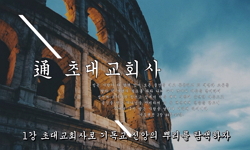In this paper, we want to present the solid viewpoint of Ganjae Jeon Woo (1841~1922) on the criteria for distinguishing the orthodox studies(正學) from the heretical ones(異學), the study of the Saints(聖學) from the heterodoxies(異端), and on...
http://chineseinput.net/에서 pinyin(병음)방식으로 중국어를 변환할 수 있습니다.
변환된 중국어를 복사하여 사용하시면 됩니다.
- 中文 을 입력하시려면 zhongwen을 입력하시고 space를누르시면됩니다.
- 北京 을 입력하시려면 beijing을 입력하시고 space를 누르시면 됩니다.
https://www.riss.kr/link?id=A99864610
- 저자
- 발행기관
- 학술지명
- 권호사항
-
발행연도
2013
-
작성언어
-
-
주제어
正學 ; 정학 ; 異學 ; 이학 ; 異端 ; 이단 ; 性卽理 ; 성즉리 ; 心卽氣 ; 심즉기 ; 心卽理 ; 심즉리 ; Orthodox studies ; Heretical studies ; Heterodoxies ; The nature is the principle ; The mind is the energy flow ; The mind is the principle
-
KDC
100
-
등재정보
KCI등재
-
자료형태
학술저널
-
수록면
139-163(25쪽)
-
KCI 피인용횟수
2
- DOI식별코드
- 제공처
- 소장기관
-
0
상세조회 -
0
다운로드
부가정보
다국어 초록 (Multilingual Abstract)
In this paper, we want to present the solid viewpoint of Ganjae Jeon Woo (1841~1922) on the criteria for distinguishing the orthodox studies(正學) from the heretical ones(異學), the study of the Saints(聖學) from the heterodoxies(異端), and on the bases for criticizing heretical studies. The criteria for distinguishing orthodox studies and study of the Saints from the heterodoxies are as followed. First, the study of the Saints is the one according to which the mind(心) considers the Heaven(天) the foundation, if the mind is considered the foundation, then this study is heretical. Second, the study which understands the Heaven`s principle(天理) as the master and the mind as the assistant, enhancing the nature(性) and regarding the principle(理) as the criterion can be called the orthodox study; while the study which thinks the mind as the holy king(聖君), lowering the nature, making the mind control the nature, and considering the mind the extreme rule is heretical. Third, the study which follows and believes in the mind is heretical, the study which follows and believes in the human nature is orthodox. Fourth, the study which considers the principle and nature the masters is orthodox, while the study which considers the energy flow(氣) and mind the masters is heretical. Fifth, the study in which the mind enhances the nature is the study of the Saints, while the study in which the mind enhances itself and makes light of the nature is heterodox. Ganjae puts forth various reference points but the last conclusion is that in his viewpoint, only study of Zhu Xi can be regarded as orthodox, and any other theories are heterodox. Only the core proposition of the study of Zhu Xi according to which ``the nature is the principle, the mind is the energy flow(性卽理·心卽氣)`` is right, while the argument that ``the mind is the principle(心卽理)`` is wrong. Only the study which regards the Heaven-the principle-the nature(天·理·性) - means the static metaphysical substances - as foundations and enhances them can be called the true study of the Saint and the orthodoxy; on the contrary, the study which regards the mind - the energy flow - as the foundation and enhances it is called heterodoxy. The study about which Jeon Woo thinks as the most desirable and correct is the one according to which the nature is considered the highest criterion and the mind the lower, the mind must imitate and respect the nature as a disciple does to his master(性師心弟).
참고문헌 (Reference)
1 홍원식, "한주 이진상의 생애와 사상" 예문서원 2008
2 최영성, "한국유학통사(하)" 심산 2006
3 김세정, "왕양명의 생명철학" 청계 2006
4 김세정, "양명 심학과 퇴계 심학의 비교 연구 -양명의 주자학 비판과 퇴계의 양명학 비판을 중심으로-" 한국동서철학회 (43) : 289-326, 2007
5 "陸九淵集"
6 琴章泰, "退溪門下의 陽明學 이해와 비판" 한국양명학회 (2) : 1998
7 "華西集" 민족문화추진회 2003
8 "艮齋集" 민족문화추진회 2004
9 간재학회, "艮齋學論叢 1집~14집" 艮齋學會
10 이상익, "畿湖性理學論考" 심산 2005
1 홍원식, "한주 이진상의 생애와 사상" 예문서원 2008
2 최영성, "한국유학통사(하)" 심산 2006
3 김세정, "왕양명의 생명철학" 청계 2006
4 김세정, "양명 심학과 퇴계 심학의 비교 연구 -양명의 주자학 비판과 퇴계의 양명학 비판을 중심으로-" 한국동서철학회 (43) : 289-326, 2007
5 "陸九淵集"
6 琴章泰, "退溪門下의 陽明學 이해와 비판" 한국양명학회 (2) : 1998
7 "華西集" 민족문화추진회 2003
8 "艮齋集" 민족문화추진회 2004
9 간재학회, "艮齋學論叢 1집~14집" 艮齋學會
10 이상익, "畿湖性理學論考" 심산 2005
11 "王陽明全集"
12 "寒洲集" 민족문화추진회 2003
13 "傳習錄"
동일학술지(권/호) 다른 논문
-
- 충남대학교 유학연구소
- 권인호 ( In Ho Kwon )
- 2013
- KCI등재
-
박세당의 『思辨錄(사변록),論語(논어)』에 대한 一考(일고)
- 충남대학교 유학연구소
- 김용재 ( Yong Jae Kim )
- 2013
- KCI등재
-
이서(李敍)『筆訣(필결)』의 학술사상적 이해와 王羲之(왕희지) 인식
- 충남대학교 유학연구소
- 전상모
- 2013
- KCI등재
-
- 충남대학교 유학연구소
- 민황기
- 2013
- KCI등재
분석정보
인용정보 인용지수 설명보기
학술지 이력
| 연월일 | 이력구분 | 이력상세 | 등재구분 |
|---|---|---|---|
| 2027 | 평가예정 | 재인증평가 신청대상 (재인증) | |
| 2021-01-01 | 평가 | 등재학술지 유지 (재인증) |  |
| 2018-01-01 | 평가 | 등재학술지 유지 (등재유지) |  |
| 2016-02-12 | 학술지명변경 | 외국어명 : 미등록 -> Studies in Confucianism |  |
| 2015-01-01 | 평가 | 등재학술지 유지 (등재유지) |  |
| 2011-01-01 | 평가 | 등재학술지 선정 (등재후보2차) |  |
| 2010-01-01 | 평가 | 등재후보 1차 PASS (등재후보1차) |  |
| 2008-01-01 | 평가 | 등재후보학술지 선정 (신규평가) |  |
학술지 인용정보
| 기준연도 | WOS-KCI 통합IF(2년) | KCIF(2년) | KCIF(3년) |
|---|---|---|---|
| 2016 | 0.62 | 0.62 | 0.56 |
| KCIF(4년) | KCIF(5년) | 중심성지수(3년) | 즉시성지수 |
| 0.52 | 0.49 | 1.162 | 0.1 |




 KCI
KCI eArticle
eArticle






